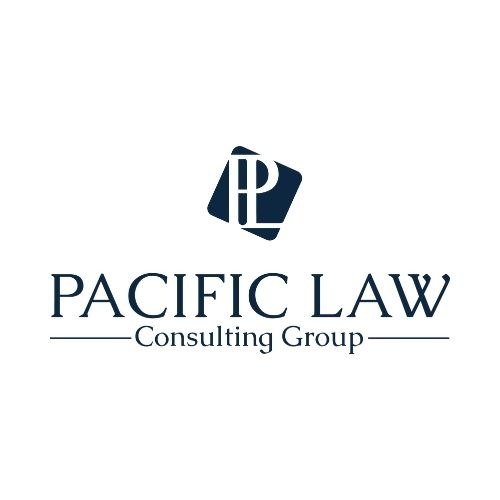Best International Trade Law Lawyers in Peru
Share your needs with us, get contacted by law firms.
Free. Takes 2 min.
Or refine your search by selecting a city:
List of the best lawyers in Peru
About International Trade Law in Peru
International Trade Law in Peru encompasses the regulations and legal frameworks that govern the exchange of goods and services across international borders. This includes a wide array of agreements, treaties, and both domestic and international laws that impact how trade is conducted. Peru has been an active participant in international trade agreements, such as the World Trade Organization (WTO) agreements, the Free Trade Agreement (FTA) with the United States, and partnerships within the Pacific Alliance that have significantly shaped its trade policies. The country aims to balance national economic interests while adhering to international commitments, making it essential for businesses involved in trade to understand both the opportunities and legal obligations they face.
Why You May Need a Lawyer
There are many scenarios where individuals or businesses may require legal assistance in the realm of International Trade Law in Peru:
- Navigating complex trade regulations and compliance requirements.
- Handling disputes related to international contracts, tariffs, or trade barriers.
- Ensuring proper customs procedures and documentation for imports and exports.
- Dealing with anti-dumping measures or safeguard duties imposed by the Peruvian government.
- Facilitating negotiations or drafting agreements with foreign trade partners.
- Protecting intellectual property rights in an international trade context.
- Advice on the implications of trade agreements and adjustments required to align with international standards.
Local Laws Overview
Peru's international trade framework is influenced by numerous laws and regulations. Here are some key aspects:
- Trade Agreements: Peru is party to multiple bilateral and multilateral trade agreements that affect tariff rates and trade barriers.
- Customs Regulations: The National Customs and Tax Administration (SUNAT) oversees customs procedures, import/export documentation, and compliance.
- Intellectual Property: Protection of intellectual property rights is governed by INDECOPI, particularly relevant for businesses exporting branded goods.
- Dispute Resolution: Disputes related to international trade can often be resolved through domestic arbitration or by addressing international tribunals.
- Safety and Standards: Peru adheres to various international standards that affect product safety and quality requirements.
Frequently Asked Questions
What are the primary trade agreements Peru is part of?
Peru is a member of the WTO, and it has several FTAs, including those with the United States, China, the European Union, and within the Pacific Alliance.
How are tariffs regulated in Peru?
Tariffs in Peru are determined by trade agreements and domestic laws, with specific rates applicable depending on the product and its country of origin.
What is the role of SUNAT in international trade?
SUNAT is responsible for customs control, regulation of imports and exports, and enforcement of tax compliance related to international trade.
How can businesses protect their intellectual property in Peru?
Businesses can register their intellectual property with INDECOPI to ensure legal protection and take action against infringements.
What dispute resolution options are available for international trade conflicts?
Options include arbitration, seeking recourse through domestic courts, or addressing tribunals specified in trade agreements.
What are the key documentation requirements for importing goods into Peru?
Key documents include the commercial invoice, bill of lading, certificate of origin, and any necessary permits or licenses required by the Peruvian authorities.
How does Peru handle anti-dumping measures?
Peru applies anti-dumping duties if investigations by INDECOPI demonstrate that dumped imports cause harm to the domestic industry.
Can a foreign company engage directly in trade with Peru?
Yes, foreign companies can engage in trade with Peru, often benefitting from Peru's trade agreements that provide reduced tariffs and clear entry channels.
What safety standards must products meet to be sold in Peru?
Products must comply with international and national safety standards. Specific requirements can vary by product category and industry.
Are there specific regulations for e-commerce in international trade with Peru?
E-commerce involving international trade must comply with general trade regulations, consumer protection laws, and digital transaction standards set by Peruvian authorities.
Additional Resources
Here are some resources and organizations that can provide valuable assistance:
- MINCETUR: The Ministry of Foreign Trade and Tourism in Peru offers guidance on trade policies and agreements.
- SUNAT: Provides detailed information about customs regulations and tax compliance.
- INDECOPI: Manages intellectual property rights and oversees competition and consumer issues.
- Chambers of Commerce: Many local chambers of commerce offer resources and support for businesses engaged in international trade.
Next Steps
If you need legal assistance in International Trade Law in Peru, consider the following steps:
- Identify the specific issue or legal question you are facing.
- Consult with a qualified lawyer specializing in International Trade Law to gain expert insights and guidance.
- Gather all relevant documents and information before your consultation, including trade agreements, contracts, and correspondence.
- Consider reaching out to governmental bodies like MINCETUR for additional support and information.
- Evaluate any legal advice carefully and decide on the best course of action to address or resolve your trade-related concerns.
Lawzana helps you find the best lawyers and law firms in Peru through a curated and pre-screened list of qualified legal professionals. Our platform offers rankings and detailed profiles of attorneys and law firms, allowing you to compare based on practice areas, including International Trade Law, experience, and client feedback.
Each profile includes a description of the firm's areas of practice, client reviews, team members and partners, year of establishment, spoken languages, office locations, contact information, social media presence, and any published articles or resources. Most firms on our platform speak English and are experienced in both local and international legal matters.
Get a quote from top-rated law firms in Peru — quickly, securely, and without unnecessary hassle.
Disclaimer:
The information provided on this page is for general informational purposes only and does not constitute legal advice. While we strive to ensure the accuracy and relevance of the content, legal information may change over time, and interpretations of the law can vary. You should always consult with a qualified legal professional for advice specific to your situation.
We disclaim all liability for actions taken or not taken based on the content of this page. If you believe any information is incorrect or outdated, please contact us, and we will review and update it where appropriate.
Browse international trade law law firms by city in Peru
Refine your search by selecting a city.










